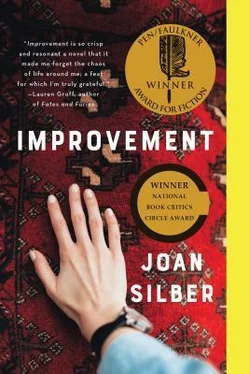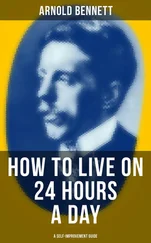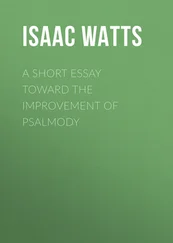On the bus she’d carried, stashed above the seat, three rugs leftover from the store. They always folded smaller than you thought. Osman had wanted her to have these, a legacy, something for whatever home she had someday. He brought them up from the storeroom with great ceremony, long hugs, real kisses.
Now they were under her cot in this room she shared with Pat’s little girl. She’d find work; she knew how to work. She’d get money. Through the night, waking and sleeping in bursts, Kiki understood all over again that she really had lost Osman—another version of their fate had stopped being imaginable—and the tooth of regret tore at her heart, though she couldn’t have said what she regretted or what she would undo.
At breakfast, Pat’s husband, Halil, teased her about being a farmwife and told his daughter that Kiki had pulled a plough all by herself, just like an ox, which the kid believed. Kiki didn’t mind Halil—a bit of a blowhard at times but he could be fun. “You came back on purpose to this city where we kill each other for politics?” Halil said.
Pat said, “Please, she just got here. She’s getting her bearings.”
“Maybe you’ll go to Israel,” Halil said. “Thousands of people doing that now.”
He wasn’t ill-natured but he never forgot that she was Jewish. “How did I not remember what it’s like here?” Kiki said.
He thought she meant the politics. “Tel Aviv more peaceful,” he said. “For you.”
It was a rainy and chilly season in Istanbul; the fall mists were turning to winter sleet. She couldn’t stay at Pat’s forever—as even Pat began to hint by Christmas—and she got work finally as a night clerk in a hotel, a lonely job that came with its own dismal room but barely a salary. Her allotted room was an underheated chamber in the hotel’s basement. She was not supposed to bring men there, and she didn’t.
By the end of that long winter, Kiki had sold two of the rugs. She had to eat, didn’t she? The first two went for cash to live on, but the other one, the best, she kept folded in her suitcase. She had fewer friends left in Istanbul than she’d expected. When the weather wasn’t too cold, she went with Pat to the park and they ran around with her rambunctious little daughter. Pat was pregnant again and happy about it.
Walking back to the hotel one damp day, Kiki ran into an American guy that she’d known before—Rob? Was it Rob?—who taught English in a private high school. “You’re looking good,” he told her. “We should have a drink or something.” All at once she was full of hope—maybe this was what she should’ve done all along, a fellow American. She had many steamy images of their happy future together, before they met in a café the next Monday, which was her one night off. “Can’t believe you’re here again,” he said. He complained about his teaching (“spoiled American brats, sneaky little Turks”), kept saying he hated Istanbul (“you know the cops are controlled by the CIA”), and made fun of the waiter to her (“how would I look with that mustache?”). Nothing could have made her miss Osman more purely and more thoroughly. She was speechless from despair by the time Rob finally said goodnight (startled by her lack of interest) in front of the hotel.
How grim her basement room looked, with its sink in the corner, its mattress on the floor. What was she doing here? She was thirty years old. She wasn’t supposed to keep food in the room, but a can of peach nectar, a consoling beverage, was in her satchel. For lack of a can opener, she had to hack at it with a penknife, and she was making good progress, until she saw she’d cut herself with the jagged lid. Why was she bleeding so much? She bled on her best sweater, which she’d worn for her date, and she bled on the hotel’s bedspread too. She heard herself shriek and curse, and she moved fast, bandaging her hand with a sock, soaking her sweater in the sink, dabbing at the bedspread with a soapy washcloth. What could they do to her? No one could do anything to her. Fire her, make her pay for the spread? So what. But she was moaning as she worked.
She was remembering when Osman had cut himself like that, doing something with a shovel and a thornbush, and he’d come into the house and bled all over the tablecloth in the kitchen, which she had just washed in a tub with a wringer the day before and had taken off the line that morning. “What is the matter with you?” she said. “You never think for a second about what I have to do. Have you ever fucking washed anything? You never think of anyone but your own ridiculous self.” Hate had risen in her and she hadn’t seen—how could she not have seen?—that Osman’s father was in the kitchen. She had spoken that way to Osman in front of his father (who understood her fine). Osman had a look of shock and rancor, and his father, whom she saw out of the corner of her eye, had horror in his face.
And what had she been doing, yelling at a bleeding man? Why had she hated her husband? Every marriage had that in it. It made her never want to be married. Maybe some marriages were better. She was sorry to have been that person, the hater. She had a long list of things he’d done she hated. Not so long ago either. It was what it was.
And now she’d gotten herself here, to this room like an urban stable, huddled for the night under a wet bedspread. All the bedding was sodden now, and just because she would fall asleep anyway didn’t mean she was doing so well for herself. Look at how she’d been scrubbing the coverlet, in fear of the manager. His threats, his contempt. She was too old for this crap.
The last rug, the saved one, the most beautiful, would have to go for her ticket home. If she’d hoped to keep it she’d been wrong. In the next week, she walked carefully through neighborhoods she knew and some she didn’t, until she found a dealer she was sure didn’t know Osman. In the preliminary chatting he flirted and praised her Turkish, which he claimed was better than his sister spoke. The man was poker-faced when she unfurled the rug—well, that was his job—but when she asked him to name a price, he stunned her. He started with three times what she had guessed, and she bargained him up to more than that. Had Osman known what this thing was worth? It was a Sivas carpet, in good condition for its age (did they have the age wrong?), subtle in its colors, very Persian in its designs. The dealer, a handsome Kurd named Emir, paid her in cash from his safe, as dealers did. She was astonished when she walked out the door.
The next day she showed up at the store to buy back the rug. It seemed to her that she had tricked Osman by getting all this money for it. It shouldn’t be sold. What else did she have from her marriage, which had been a real marriage? Emir the dealer was not having any of this. When the summer tourists came, he would get much more than he’d just paid for it. Very sorry. He’d already hung it where it could be seen from the street.
This was a low point. She was choked with vain and useless regret. When would she stop making mistakes? The rug dealer was bringing her tea, with his apologies, and a dish of candies. “Eat, please. You’re like the beautiful French girls, too thin. Are you French?”
If she flirted back, would he change his mind about the rug? “So all the French girls come to see you?”
“Not me,” he said. “My carpets.”
But this was enough to get them going. He was easy to talk to, playful but modest (not so usual), and he had a fabulous hawkish face with swooping eyebrows. He’d been in Istanbul only six years, his cousin brought him, he liked music, did she like music, and so on. Yes, she loved music. It was a shock to feel attracted to him—and to find herself, by the next evening, in bed with someone who wasn’t Osman. Emir had real gallantry in him, and she was returned to her own body in a way she hadn’t even asked for. He was a stroke of luck.
Читать дальше












